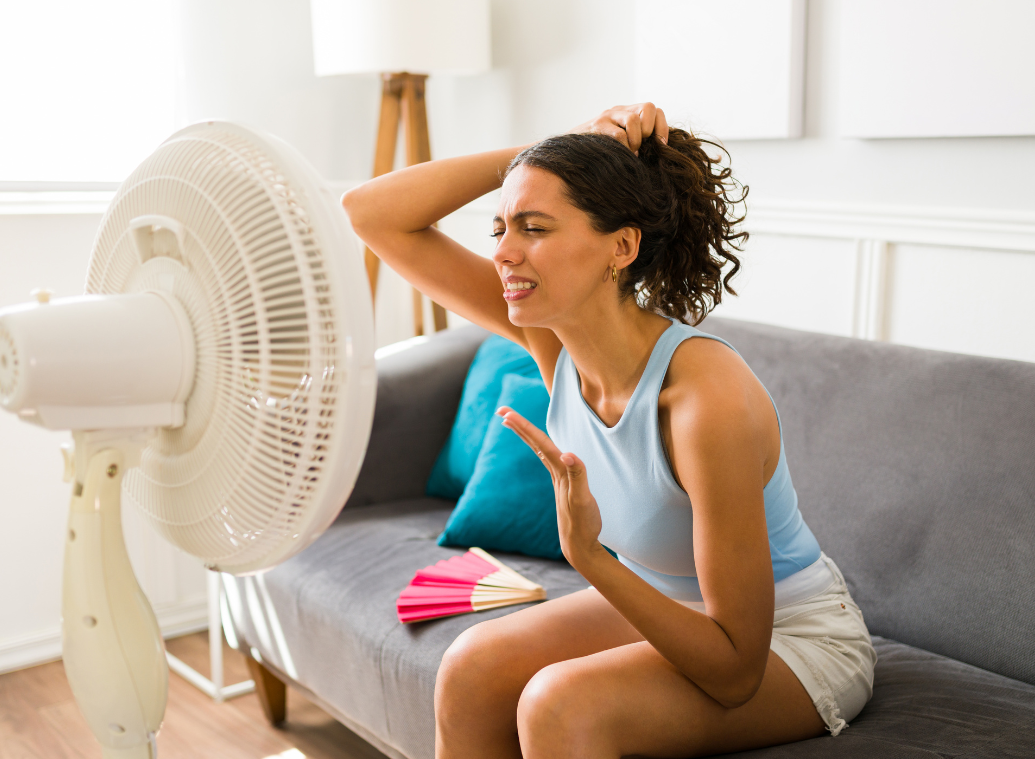Fibromyalgia: Is summer a time for relief or discomfort?
Published Jul 14, 2025 • By Candice Salomé
Summer is here, bringing sunshine, relaxation, and the comforting warmth of longer days. But for people living with fibromyalgia, this season isn’t always a welcome break. While some find temporary relief from their symptoms, others notice an increase in pain and fatigue when temperatures rise.
Why does heat affect people with fibromyalgia so differently? And how can you adapt your daily routine to better cope with this sensitive time of year?
In this article, we explore the connection between fibromyalgia and summer heat, and share practical advice for managing the season more comfortably.

What is fibromyalgia?
A chronic condition with multiple symptoms
Fibromyalgia is a long-term health condition marked by a range of persistent and often debilitating symptoms. Chief among them is widespread muscle pain, which may feel burning, stabbing, or like constant soreness. Many people also report pronounced stiffness, particularly when waking up in the morning.
Fatigue is another major symptom, often so overwhelming that even simple daily tasks can become exhausting. Difficulty concentrating, short-term memory issues (commonly called “fibro fog”), and emotional symptoms like anxiety or depression are also frequently experienced. Sleep disturbances are very common and can lead to unrefreshing rest, contributing further to ongoing fatigue.
A poorly understood origin
Despite years of research, the exact cause of fibromyalgia remains unclear. One of the leading theories points to a dysfunction in the central nervous system. The brain and spinal cord seem to process pain signals abnormally, amplifying them even when there is no clear injury.
This phenomenon, known as central sensitisation, lowers the brain’s pain threshold and may explain why people with fibromyalgia are so sensitive to environmental stimuli, including noise, light, cold, and heat.
Summer heat and fibromyalgia: What effect does it have?
Potential benefits of warmth
Some people with fibromyalgia actually find that warm weather brings relief. Moderate heat can help relax tight or aching muscles, leading to less pain. It also supports better blood circulation, which may help oxygenate tissues more effectively and ease morning stiffness.
For these individuals, sunny days can improve mobility, lift mood, and create a general sense of well-being.
Negative effects: When heat becomes a burden
On the flip side, extreme summer heat can be a real challenge for others. High temperatures may lead to rapid fatigue, even after minimal effort. This is particularly hard for those already living with chronic exhaustion.
Hot nights can make it difficult to sleep, reducing the body’s ability to recover and recharge. Many people report waking up frequently, experiencing night sweats, or struggling to fall asleep at all. Headaches, dizziness, and general discomfort caused by the heat are also common, often intensifying the sense of unease.
For these individuals, summer can feel like yet another hurdle to overcome.
Why do some people suffer more in summer?
Sensitivity to weather changes
Fibromyalgia is often linked to increased sensitivity to shifts in weather. Changes in humidity, temperature, and atmospheric pressure can all affect symptom severity.
It’s not unusual for someone with fibromyalgia to describe being able to “feel” the weather changing in their body. The unpredictability of summer—heatwaves, storms, and sudden shifts—can make this time of year particularly challenging.
Nervous system dysregulation
People with fibromyalgia often experience problems regulating body temperature. This thermal dysregulation, combined with sensory hypersensitivity, can make it harder to tolerate heat.
When the body struggles to adapt to rising temperatures, it may lead to internal overheating, hot flushes, excessive sweating, and general discomfort. These physical reactions can aggravate pain and intensify fatigue.
How can you better manage fibromyalgia during the summer?
Adapting to heat in everyday life
To cope better with heat, it’s helpful to make some lifestyle adjustments. Wearing loose, breathable clothing and staying in shaded or air-conditioned spaces can make a big difference. It’s also a good idea to avoid being outdoors during the hottest parts of the day.
Planning physical activity for the early morning or later evening, when temperatures are cooler, can help you stay active without putting unnecessary stress on your body.
Nutrition and hydration
What you eat and drink can also impact how you feel in hot weather. Staying well-hydrated is essential, even if you don’t feel thirsty. Choose refreshing drinks and eat water-rich foods like watermelon or cucumber. Light, easy-to-digest meals tend to be more suitable during the summer.
Conversely, foods that promote inflammation—such as those high in sugar or saturated fat—can worsen pain or digestive discomfort. Adjusting your diet for the season may help relieve some symptoms and improve your overall comfort.
Getting better sleep despite the heat
Quality sleep is crucial for anyone managing fibromyalgia. To improve sleep during warm nights, try airing out your bedroom in the evening, using a fan, or placing cool damp cloths on your skin. Avoid screens before bedtime and create a calming nighttime routine that helps your body wind down.
A cool, peaceful environment can support deeper sleep, which in turn helps ease pain, reduce anxiety, and improve energy levels.
Key takeaways
Heat affects people with fibromyalgia in very different ways. While some feel better in the warmth, others struggle with worsened symptoms. The most important thing is to pay attention to your body, make thoughtful adjustments to your routine, and consult a healthcare provider if needed.
With the right strategies and a proactive mindset, it is possible to get through the summer months with greater ease and well-being.
Did you find this article helpful?
Give it a “Like” and share your thoughts and questions with the community in the comments below!
Take care!

 Facebook
Facebook Twitter
Twitter


